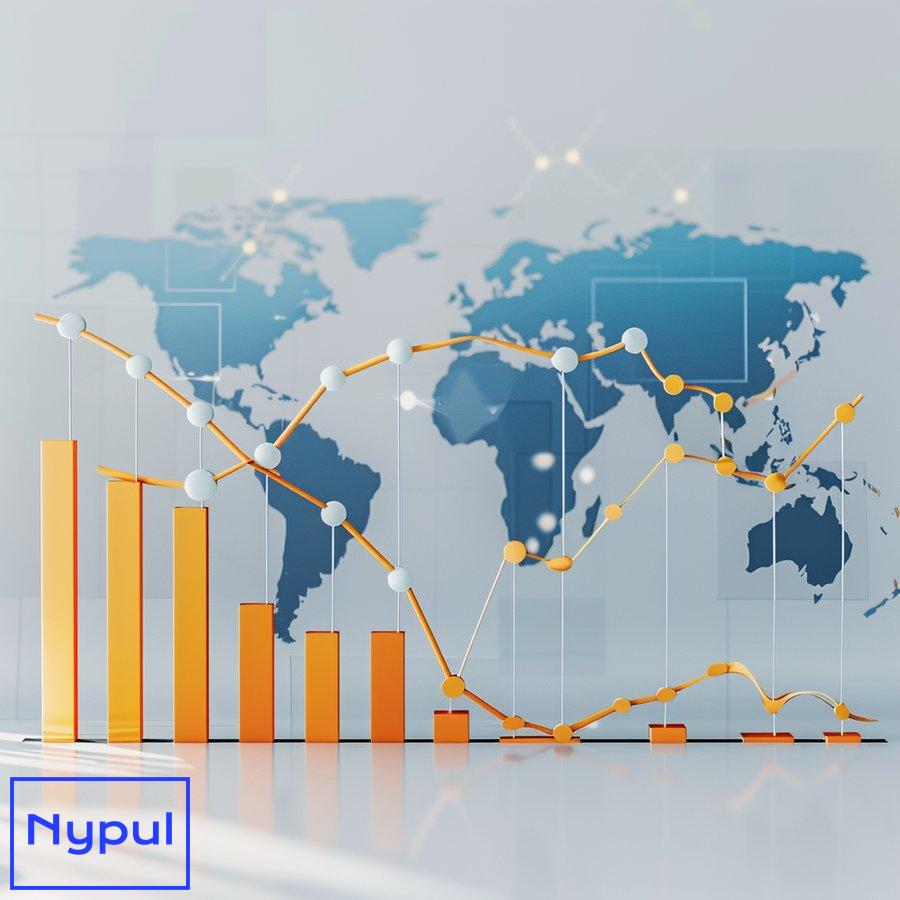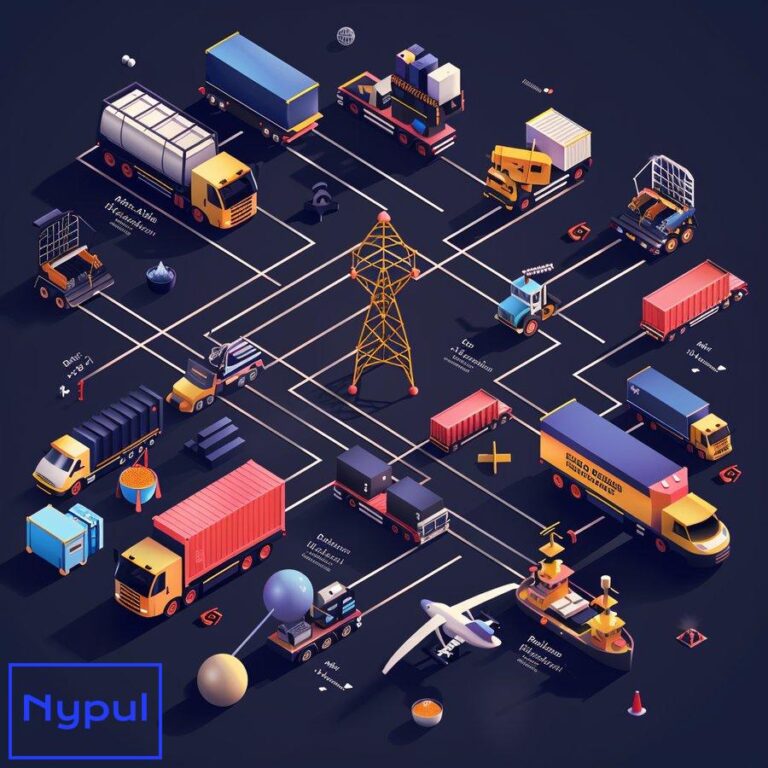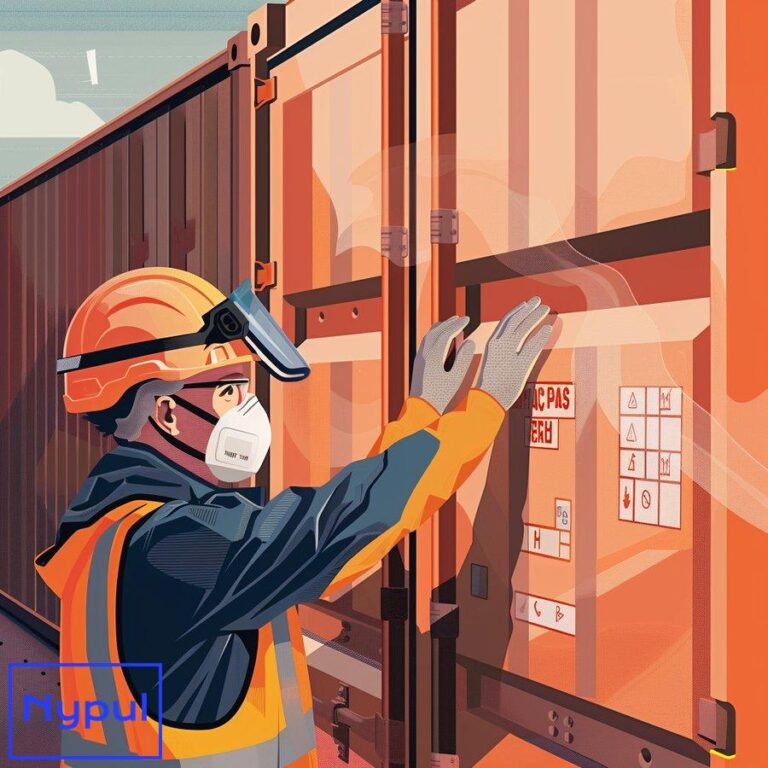Why Is Customs Valuation Important
What is customs valuation and why does it matter?
Customs valuation forms the cornerstone of international trade, serving as the process of determining the monetary worth of imported goods for the purpose of assessing duties and taxes. This critical procedure ensures fair trade practices and accurate revenue collection for governments worldwide.

The importance of customs valuation extends far beyond mere number crunching. It plays a pivotal role in shaping global commerce, influencing business decisions, and maintaining the delicate balance of international trade relationships. For importers, exporters, and customs authorities alike, understanding the intricacies of customs valuation is essential for navigating the complex world of cross-border transactions.
At its core, customs valuation relies on the concept of “transaction value” – the price actually paid or payable for goods when sold for export to the country of importation. This value serves as the primary basis for determining customs duties and taxes. However, the process is far from straightforward, involving various methods and considerations to ensure accuracy and fairness.
The World Trade Organization (WTO) has established a standardized framework for customs valuation through the Agreement on Implementation of Article VII of the General Agreement on Tariffs and Trade 1994, commonly known as the WTO Customs Valuation Agreement. This agreement provides a uniform system for valuing goods, promoting consistency and transparency in international trade.
For businesses engaged in global commerce, accurate customs valuation is crucial for several reasons:
Cost Management
Proper valuation ensures that companies pay the correct amount of duties and taxes, avoiding both overpayment and potential penalties for undervaluation.
Compliance
Adhering to customs valuation regulations demonstrates a commitment to legal and ethical business practices, fostering trust with customs authorities and trading partners.
Strategic Planning
Understanding customs valuation principles allows businesses to make informed decisions regarding pricing, sourcing, and supply chain management.
Risk Mitigation
Accurate valuation helps companies avoid costly delays, audits, and potential legal issues associated with incorrect declarations.
For governments, customs valuation serves as a vital tool for:
Revenue Generation
Customs duties and taxes derived from imported goods contribute significantly to national budgets, funding essential public services and infrastructure.
Trade Policy Implementation
Valuation practices help enforce trade agreements, quotas, and other regulatory measures designed to protect domestic industries and promote fair competition.
Economic Analysis
Accurate valuation data provides valuable insights into trade patterns, market trends, and economic indicators, informing policy decisions and strategic planning.
The complexities of customs valuation extend beyond simple price calculations. Factors such as royalties, license fees, assists, and related party transactions can all impact the final declared value. As global trade continues to evolve, so too do the challenges and opportunities surrounding customs valuation.
In the following sections, we will delve deeper into the various aspects of customs valuation, exploring its impact on international trade, government revenue, and business strategies. We will examine the key methods used in valuation, the challenges faced by importers, and the transformative role of technology in modernizing customs processes. By gaining a comprehensive understanding of customs valuation, businesses and policymakers can better navigate the intricacies of global commerce and harness its potential for growth and prosperity.
How does customs valuation impact international trade?

Customs valuation exerts a profound influence on the dynamics of international trade, shaping the flow of goods across borders and influencing the strategies of businesses engaged in global commerce. The impact of customs valuation on international trade manifests in various ways, affecting everything from pricing decisions to market access and competitive positioning.
Trade Facilitation
Accurate and consistent customs valuation practices contribute to the smooth flow of goods across borders. When valuation processes are transparent and predictable, importers and exporters can plan their transactions with greater confidence, reducing uncertainties and potential delays at customs checkpoints. This efficiency in trade facilitation translates to faster delivery times, lower costs, and improved customer satisfaction.
Market Access
Customs valuation directly affects the cost of importing goods into a country. Higher valuations lead to increased duties and taxes, potentially making certain products less competitive in the target market. Conversely, lower valuations can enhance market access by reducing the overall cost of imported goods. This dynamic plays a crucial role in determining which products can successfully penetrate foreign markets and compete with domestic alternatives.
Competitive Positioning
The way customs authorities value imported goods can significantly impact the competitive landscape within a market. Inconsistent or discriminatory valuation practices may create unfair advantages for certain importers or domestic producers. Conversely, fair and uniform valuation ensures a level playing field, allowing businesses to compete based on factors such as quality, innovation, and efficiency rather than arbitrary customs assessments.
Supply Chain Decisions
Customs valuation considerations often influence companies’ sourcing and manufacturing strategies. Businesses may choose to relocate production facilities, alter their supply chain structures, or seek alternative suppliers based on the potential customs valuation implications of their decisions. These strategic choices can have far-reaching effects on global trade patterns and the distribution of economic activity across countries.
Trade Negotiations
The principles and practices of customs valuation play a significant role in international trade negotiations. Countries often seek to harmonize valuation methods and ensure fair treatment of their exports in foreign markets. Disputes over valuation practices can become major sticking points in trade talks, potentially impacting broader economic relationships between nations.
Risk Management
For businesses engaged in international trade, customs valuation represents a critical area of risk management. Inaccurate valuations can lead to penalties, delays, and reputational damage. Companies must invest in robust compliance programs and expertise to navigate the complexities of customs valuation across different jurisdictions, adding to the overall cost and complexity of engaging in global trade.
Price Transparency
Customs valuation practices contribute to greater price transparency in international markets. By requiring detailed documentation and justification for declared values, customs authorities help combat practices such as transfer pricing manipulation and invoice fraud. This transparency benefits legitimate businesses and promotes fair competition.
Trade Statistics
Accurate customs valuation is essential for compiling reliable trade statistics. These statistics inform policy decisions, economic analyses, and business strategies. Distortions in valuation can lead to skewed perceptions of trade balances, potentially influencing political decisions and economic policies that shape the global trading environment.
To illustrate the impact of customs valuation on trade flows, consider the following hypothetical scenario:
| Country | Product | Declared Value | Duty Rate | Total Duty |
|---|---|---|---|---|
| A | Widgets | $100,000 | 5% | $5,000 |
| B | Widgets | $120,000 | 5% | $6,000 |
In this example, identical shipments of widgets are valued differently by customs authorities in Countries A and B. The higher valuation in Country B results in an additional $1,000 in duties, potentially making the widgets less competitive in that market. This difference in valuation could influence the exporter’s decision to prioritize sales to Country A or seek ways to justify a lower valuation for shipments to Country B.
The impact of customs valuation on international trade extends beyond individual transactions, shaping broader economic relationships and trade policies. As global commerce continues to evolve, the importance of fair, consistent, and transparent customs valuation practices only grows. By understanding and navigating these complexities, businesses can optimize their international trade strategies, while policymakers can work towards creating a more equitable and efficient global trading system.
What role does customs valuation play in government revenue?
Customs valuation plays a pivotal role in government revenue generation, serving as a critical mechanism for assessing and collecting duties and taxes on imported goods. The accuracy and effectiveness of customs valuation directly impact a nation’s fiscal health, influencing its ability to fund public services, infrastructure development, and economic initiatives.
Revenue Source
Customs duties represent a significant source of income for many governments, particularly in developing countries. The valuation of imported goods forms the basis for calculating these duties, making it a fundamental component of the revenue collection process. Accurate and consistent valuation ensures that governments receive the appropriate amount of revenue from international trade activities.
Fiscal Planning
The predictability of customs revenue, based on reliable valuation practices, allows governments to engage in more effective fiscal planning. By forecasting expected income from customs duties, policymakers can allocate resources, plan budgets, and make informed decisions about public spending and investment.
Economic Policy Implementation
Customs valuation serves as a tool for implementing various economic policies. By adjusting valuation methods or scrutiny levels, governments can influence the flow of certain goods into the country, protecting domestic industries or encouraging specific types of imports. This flexibility allows customs valuation to support broader economic objectives beyond mere revenue collection.
Trade Agreement Enforcement
Proper customs valuation is essential for enforcing the terms of international trade agreements. Many such agreements include provisions related to customs duties and valuation practices. By maintaining accurate and consistent valuation methods, governments can ensure compliance with these agreements while protecting their revenue interests.
Anti-Fraud Measures
Rigorous customs valuation processes help combat various forms of trade-related fraud, such as under-invoicing or misclassification of goods. By detecting and deterring these practices, governments can prevent revenue leakage and maintain the integrity of their customs systems.
Market Regulation
The valuation of imported goods influences their final market price, affecting consumer behavior and market dynamics. Governments can use customs valuation as a tool to regulate the domestic market, influencing the competitiveness of imported goods relative to locally produced alternatives.
Data Collection
Accurate customs valuation provides valuable data on trade flows, market trends, and economic indicators. This information supports evidence-based policymaking, allowing governments to make informed decisions on trade policies, economic strategies, and revenue projections.
To illustrate the significance of customs valuation in government revenue, consider the following hypothetical scenario:
| Year | Total Imports Value | Average Duty Rate | Revenue from Customs Duties |
|---|---|---|---|
| 2020 | $100 billion | 5% | $5 billion |
| 2021 | $110 billion | 5% | $5.5 billion |
| 2022 | $120 billion | 5% | $6 billion |
In this example, a 10% annual increase in the total value of imports, assuming consistent valuation practices and duty rates, results in a corresponding increase in government revenue from customs duties. This demonstrates how changes in import volumes and values directly impact government income, underscoring the importance of accurate and efficient customs valuation processes.
Challenges in Revenue Collection
While customs valuation is a crucial tool for government revenue generation, it also presents several challenges:
Valuation Disputes
Disagreements between importers and customs authorities over the appropriate valuation of goods can lead to delays, legal disputes, and potential revenue loss.
Resource Allocation
Effective customs valuation requires significant investments in technology, training, and personnel. Governments must balance the costs of maintaining robust valuation systems against the potential revenue benefits.
Global Economic Fluctuations
Changes in global economic conditions, exchange rates, and trade patterns can impact the value of imported goods, potentially affecting government revenue projections.
Technological Advancements
The rise of e-commerce and digital goods presents new challenges for customs valuation, requiring governments to adapt their processes and regulations to capture revenue from these evolving forms of trade.
Harmonization Efforts
Governments must work towards harmonizing their valuation practices with international standards while maintaining the flexibility to address domestic economic needs and revenue goals.
The role of customs valuation in government revenue extends beyond simple tax collection. It serves as a multifaceted tool for economic management, trade regulation, and fiscal planning. As global trade continues to evolve, the importance of effective and fair customs valuation practices in supporting government revenue and broader economic objectives only grows. By recognizing the critical role of customs valuation, policymakers can work towards optimizing their revenue collection systems while fostering a conducive environment for international trade and economic growth.
How does the WTO Customs Valuation Agreement affect global trade?
The World Trade Organization (WTO) Customs Valuation Agreement, officially known as the Agreement on Implementation of Article VII of the General Agreement on Tariffs and Trade 1994, has profoundly influenced global trade by establishing a standardized framework for determining the value of imported goods. This agreement aims to promote fairness, uniformity, and transparency in customs valuation practices worldwide, significantly impacting how nations engage in international commerce.
Harmonization of Valuation Methods
The WTO Customs Valuation Agreement introduces a set of standardized methods for determining the customs value of imported goods. This harmonization reduces discrepancies in valuation practices across different countries, creating a more predictable and consistent environment for international trade. Importers and exporters can operate with greater certainty, knowing that similar valuation principles will be applied regardless of the destination country.
Promotion of Fair Trade
By establishing clear guidelines for customs valuation, the agreement helps prevent arbitrary or discriminatory practices that could unfairly advantage or disadvantage certain traders or countries. This level playing field fosters fair competition and encourages participation in global trade, particularly for smaller businesses and developing nations.
Reduction of Trade Barriers
The agreement aims to eliminate the use of arbitrary or fictitious customs values, which have historically served as non-tariff barriers to trade. By promoting the use of the transaction value as the primary basis for valuation, the agreement helps reduce artificial inflation of customs values, lowering the effective cost of importing goods.
Enhanced Predictability
The standardized approach to customs valuation provided by the agreement enhances predictability in international trade transactions. This predictability allows businesses to more accurately forecast costs, plan pricing strategies, and make informed decisions about market entry and expansion.
Dispute Resolution Mechanism
The agreement establishes procedures for resolving valuation disputes between importers and customs authorities. This mechanism helps prevent prolonged conflicts, reduces the risk of arbitrary decisions, and provides a framework for fair resolution of disagreements, contributing to smoother trade flows.
Capacity Building
The implementation of the WTO Customs Valuation Agreement has spurred significant capacity-building efforts in many countries, particularly in developing nations. These initiatives have led to improvements in customs administration, training of personnel, and modernization of valuation systems, enhancing overall trade facilitation.
Transparency and Information Exchange
The agreement promotes transparency by requiring member countries to publish their laws, regulations, and administrative procedures related to customs valuation. This openness facilitates better understanding and compliance among traders and fosters an environment of trust in international commerce.
To illustrate the impact of the WTO Customs Valuation Agreement on global trade, consider the following comparison of pre-agreement and post-agreement scenarios:
| Aspect | Pre-Agreement | Post-Agreement |
|---|---|---|
| Valuation Methods | Varied widely between countries | Standardized methods across WTO members |
| Predictability | Low, due to arbitrary valuations | High, based on transaction value principle |
| Dispute Resolution | Often lengthy and inconsistent | Structured process with clear guidelines |
| Transparency | Limited information sharing | Published laws and procedures |
| Trade Costs | Higher due to inflated valuations | Reduced through fair and consistent valuation |
This comparison demonstrates how the agreement has transformed key aspects of customs valuation, leading to a more favorable environment for global trade.
Challenges and Ongoing Developments
While the WTO Customs Valuation Agreement has significantly improved the landscape of international trade, several challenges and areas for development remain:
Implementation Disparities
Some countries, particularly developing nations, face challenges in fully implementing the agreement due to resource constraints or complex legacy systems. This can lead to inconsistencies in global application.
Emerging Trade Models
The rise of e-commerce, digital goods, and complex supply chains presents new challenges for customs valuation. The WTO and member countries continue to work on adapting the agreement’s principles to these evolving trade models.
Transfer Pricing Issues
The interaction between customs valuation and transfer pricing in related-party transactions remains a complex area, often requiring further clarification and harmonization efforts.
Capacity Building Needs
Ongoing support and training are necessary to ensure that all WTO members can effectively implement and maintain compliance with the agreement’s provisions.
Balancing Facilitation and Control
Countries must strike a balance between facilitating trade through efficient valuation processes and maintaining adequate controls to prevent undervaluation and revenue loss.
The WTO Customs Valuation Agreement has fundamentally reshaped the landscape of global trade by promoting fairness, consistency, and transparency in customs valuation practices. Its impact extends beyond mere technical procedures, influencing trade policies, business strategies, and economic relationships between nations. As international commerce continues to evolve, the principles established by this agreement serve as a crucial foundation for fostering a more open, predictable, and equitable global trading system.
By providing a common framework for determining the value of imported goods, the agreement has reduced trade barriers, enhanced predictability, and promoted fair competition in international markets. These benefits have contributed to the growth of global trade volumes and the integration of economies worldwide. However, the ongoing challenges in implementation and adaptation to new trade realities underscore the need for continued cooperation and development in the field of customs valuation.
As stakeholders in global trade navigate the complexities of customs valuation, the WTO Customs Valuation Agreement remains a cornerstone of international trade regulation, guiding practices and shaping policies that facilitate the flow of goods across borders. Its continued relevance and evolution will play a crucial role in supporting the growth and fairness of international commerce in the years to come.
What are the key methods used in customs valuation?
The World Trade Organization (WTO) Customs Valuation Agreement outlines six primary methods for determining the customs value of imported goods. These methods are applied in a hierarchical order, with each subsequent metho## What are the key methods used in customs valuation?
The World Trade Organization (WTO) Customs Valuation Agreement outlines six primary methods for determining the customs value of imported goods. These methods are applied in a hierarchical order, with each subsequent method used only if the previous one is not applicable. Understanding these methods is essential for importers and exporters to ensure compliance and optimize their customs valuation processes.
1. Transaction Value Method
The transaction value method is the most commonly used approach for customs valuation. It is based on the price actually paid or payable for the goods when sold for export to the importing country. This method considers various elements that may affect the price, including:
- Adjustments for Costs: Additional costs such as commissions, packing, and transportation that occur prior to importation can be included in the transaction value.
- Related Party Transactions: If the buyer and seller are related, customs authorities may scrutinize the transaction value to ensure it reflects an arm’s length price.
2. Transaction Value of Identical Goods
If the transaction value method cannot be applied, customs authorities may use the transaction value of identical goods imported at the same time or close to the same time. Identical goods must be:
- Commercially interchangeable: They should have the same characteristics and quality.
- Sold under similar conditions: The sales terms must be comparable to ensure a fair valuation.
3. Transaction Value of Similar Goods
When neither the transaction value of identical goods nor the original transaction value can be determined, customs may consider the transaction value of similar goods. Similar goods are those that:
- Perform a similar function: They must serve the same purpose or fulfill similar needs.
- Have comparable characteristics: While they do not need to be identical, they should share key attributes that affect their value.
4. Deductive Value Method
The deductive value method determines customs value based on the unit price at which imported goods are sold in the importing country. This method requires:
- Sales in the country: The goods must be sold in sufficient quantities in the domestic market.
- Adjustments for expenses: Deductions for costs incurred after importation, such as transportation and commissions, are made from this price.
5. Computed Value Method
If none of the previous methods can be applied, customs authorities may use the computed value method. This approach calculates customs value based on:
- Cost of Production: It considers all costs incurred in producing the goods, including materials, labor, and overhead.
- Profit and General Expenses: A reasonable amount for profit and general expenses incurred by the seller can also be included.
6. Fall-back Method
As a last resort, if none of the above methods can be applied, customs authorities may use a fall-back method. This approach allows customs officials to determine value based on reasonable means consistent with the principles of international trade law. It emphasizes flexibility while ensuring compliance with WTO guidelines.
To summarize these methods, consider the following table:
| Method | Description |
|---|---|
| Transaction Value | Based on actual price paid or payable for goods sold for export. |
| Transaction Value of Identical | Based on transaction values of identical goods imported around the same time. |
| Transaction Value of Similar | Based on transaction values of similar goods fulfilling comparable functions. |
| Deductive Value | Based on unit price at which imported goods are sold in the domestic market post-importation. |
| Computed Value | Based on production costs plus reasonable profit and general expenses. |
| Fall-back Method | A flexible approach using reasonable means consistent with international trade principles. |
Understanding these methods is crucial for businesses engaged in international trade as they navigate customs regulations and ensure compliance with valuation requirements. Accurate application of these methods not only helps avoid penalties but also optimizes overall trade costs.
How does customs valuation influence business strategies?
Customs valuation significantly influences business strategies by affecting pricing decisions, supply chain management, and market entry approaches. For companies engaged in international trade, understanding how customs valuation impacts their operations is essential for developing effective strategies that align with regulatory requirements while maximizing profitability.
Pricing Strategies
The customs valuation process directly affects how businesses set their prices in foreign markets. Factors influencing pricing include:
-
Duty Costs: Higher customs valuations lead to increased duties and taxes, which can inflate overall costs and necessitate higher selling prices.
-
Market Competitiveness: Businesses must consider their competitors’ pricing strategies when determining their own prices based on customs valuation outcomes.
-
Value Optimization: Companies often seek ways to optimize declared values through proper documentation and compliance to minimize duty liabilities while remaining within legal frameworks.
Supply Chain Management
Customs valuation influences supply chain decisions by affecting sourcing strategies and logistics planning:
-
Sourcing Locations: Businesses may choose suppliers based on favorable customs valuation practices or lower duty rates associated with specific countries.
-
Manufacturing Decisions: Companies might relocate production facilities closer to target markets to reduce transportation costs and improve overall supply chain efficiency.
-
Inventory Management: Understanding customs valuation helps businesses manage inventory levels effectively by anticipating potential duty liabilities associated with different products.
Market Entry Strategies
When entering new markets, businesses must consider how customs valuation affects their overall strategy:
-
Regulatory Compliance: Ensuring adherence to local customs valuation regulations is vital for successful market entry and avoiding penalties.
-
Competitive Analysis: Companies should analyze local competitors’ pricing structures influenced by customs duties to formulate competitive entry strategies.
-
Partnerships with Local Distributors: Collaborating with local partners familiar with customs procedures can help navigate complex valuation processes more efficiently.
To illustrate how customs valuation impacts business strategies, consider this hypothetical scenario involving two companies importing electronics into Country X:
| Company | Declared Value | Duty Rate | Total Duty | Selling Price | Profit Margin |
|---|---|---|---|---|---|
| Company A | $100,000 | 10% | $10,000 | $120,000 | $10,000 |
| Company B | $80,000 | 10% | $8,000 | $110,000 | $12,000 |
In this example, Company A’s higher declared value results in a greater total duty payment compared to Company B. Consequently, Company B can offer a more competitive selling price while maintaining a higher profit margin due to lower duty costs associated with its declared value strategy.
This scenario highlights how effective management of customs valuation can lead to strategic advantages in pricing and profitability within competitive markets.
What challenges do importers face in customs valuation?
Importers encounter various challenges related to customs valuation that can complicate compliance efforts and impact overall operational efficiency. Understanding these challenges is crucial for developing effective strategies to mitigate risks associated with incorrect valuations or disputes with customs authorities.

Complex Regulations
Customs valuation regulations can be intricate and vary significantly between countries:
-
Diverse Valuation Methods: Different jurisdictions may adopt varying methods for determining customs values, complicating compliance efforts for global importers.
-
Frequent Changes in Legislation: Regulatory changes can occur frequently due to evolving trade policies or economic conditions, requiring constant monitoring by importers.
-
Lack of Clarity: Ambiguities within regulations can lead to misinterpretations or inconsistent applications by both importers and customs officials.
Documentation Requirements
Accurate documentation is essential for supporting declared values during customs clearance:
-
Extensive Paperwork: Importers must maintain comprehensive records demonstrating compliance with valuation requirements, which can be resource-intensive.
-
Risk of Errors: Inaccuracies or omissions in documentation can lead to disputes with customs authorities or delays in clearance processes.
-
Related Party Transactions Scrutiny: Transactions between related parties often face heightened scrutiny from customs officials regarding declared values; importers must provide additional evidence justifying valuations.
Valuation Disputes
Disagreements over declared values can arise between importers and customs authorities:
-
Potential Penalties: Incorrect valuations may result in penalties or fines imposed by authorities due to perceived undervaluation or misclassification of goods.
-
Time-consuming Appeals Process: Resolving disputes often involves lengthy appeals processes that can disrupt business operations and delay shipments.
-
Impact on Cash Flow: Delays caused by disputes can affect cash flow management as funds tied up in duties or penalties may hinder operational flexibility.
To illustrate these challenges faced by importers regarding customs valuation, consider this hypothetical case study involving two companies importing textiles into Country Y:
| Company | Declared Value | Customs Decision | Resulting Duty |
|---|---|---|---|
| Company A | $50,000 | Accepted | $5,000 |
| Company B | $45,000 | Reassessed | $7,500 |
In this scenario, Company B faced a reassessment from customs authorities resulting in a higher duty payment due to discrepancies identified during clearance processes. This situation exemplifies how challenges related to documentation accuracy and regulatory interpretation can lead to significant financial implications for importers.
By recognizing these challenges associated with customs valuation—such as complex regulations, documentation requirements, and potential disputes—importers can develop proactive strategies aimed at ensuring compliance while minimizing risks that could disrupt their operations or impact profitability.
How is technology transforming customs valuation processes?
![]()
Technology is revolutionizing various aspects of global trade logistics—including customs valuation—by enhancing efficiency, accuracy, transparency, and compliance throughout the process. As businesses adapt to technological advancements within this domain, they gain valuable tools that streamline operations while mitigating risks associated with traditional practices.
Automation of Valuation Processes
Automated systems enable faster processing times while reducing human error through:
-
Electronic Data Interchange (EDI): EDI facilitates seamless communication between importers and customs authorities regarding required documentation—allowing real-time updates on shipments without manual intervention.
-
Automated Valuation Systems (AVS): AVS utilize algorithms based on historical data patterns combined with machine learning capabilities—allowing more accurate assessments based on various factors influencing declared values across different transactions.
-
Integration with Supply Chain Management Systems (SCMS): By integrating AVS into broader SCMS platforms—businesses streamline workflows related not only to logistics but also finance—ensuring consistency across departments involved in managing imports/exports effectively.
Data Analytics and Predictive Modeling
Advanced analytics tools empower businesses by providing insights into trade patterns through:
-
Risk Assessment Models: Predictive analytics allow companies to identify potential risks associated with specific transactions based on historical data trends—enabling proactive measures before issues arise during clearance processes.
-
Market Intelligence: Data analytics provide insights into competitor pricing strategies influenced by local regulations—allowing businesses better positioning within target markets through informed decision-making regarding pricing structures aligned with prevailing conditions affecting valuations.
-
Performance Metrics: Advanced reporting capabilities enable businesses to track key performance indicators (KPIs) related specifically to their compliance efforts—identifying areas needing improvement over time while fostering accountability across teams involved in managing imports/exports effectively.
To illustrate how technology transforms these processes within an organization engaged heavily in international trade logistics consider this hypothetical scenario involving two companies utilizing different approaches towards managing their respective custom valuations:
| Company | Technology Utilized | Efficiency Gains |
|---|---|---|
| Company A | Manual Processes | High error rates; slow clearance time |
| Company B | Automated Valuation System (AVS) | Reduced processing time; improved accuracy |
In this example—Company B’s implementation of an AVS leads directly towards enhanced operational efficiencies compared against traditional manual processes employed by Company A—ultimately resulting not only improved turnaround times but also greater accuracy concerning declared values submitted during clearance processes leading towards lower risk profiles overall for their operations internationally moving forward into new markets successfully over time leveraging technology effectively throughout their supply chains!
Conclusion
Customs valuation plays a critical role in shaping international trade dynamics by influencing business strategies while serving as an essential tool for government revenue generation through accurate assessments made during import/export transactions globally today! By understanding its importance—from foundational concepts surrounding different methodologies employed down through practical implications faced daily by stakeholders involved—it becomes clear why navigating complexities inherent within this space remains paramount moving forward!
As technology continues transforming traditional practices surrounding custom valuations—businesses stand poised not only capitalize upon newfound efficiencies gained through automation/data analytics but also adapt proactively towards evolving regulatory landscapes ensuring compliance remains intact throughout all stages involved within their respective supply chains successfully!






